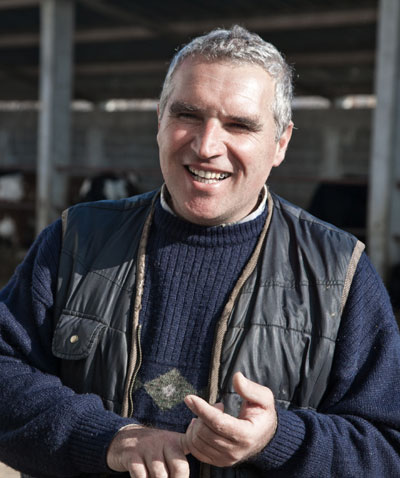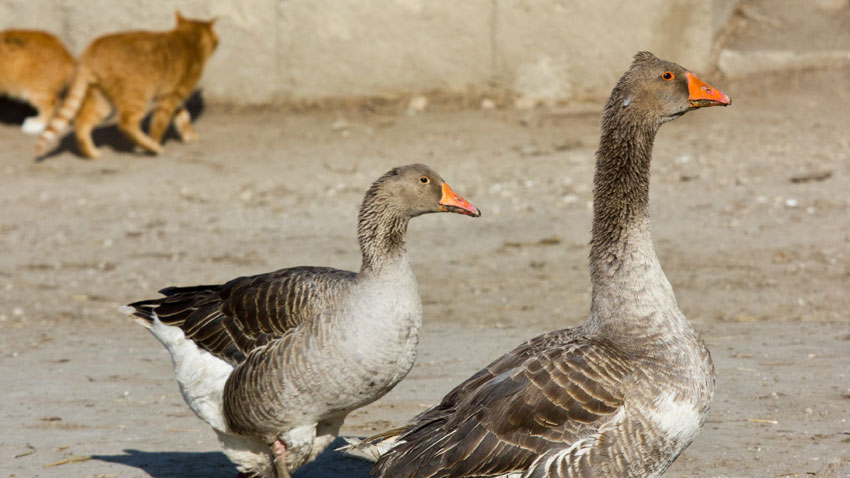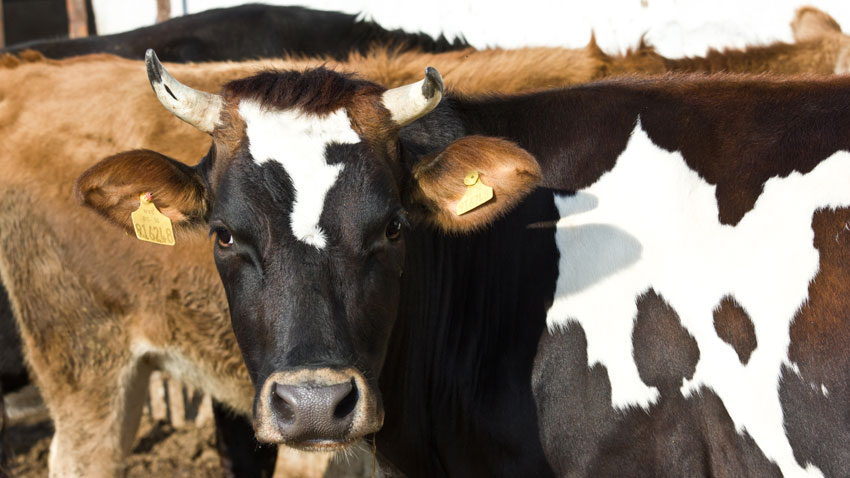Following a long lull Bulgarian farmers have resumed protests outside the Ministry of Agriculture objecting the latest regulations and requirements put to them. Caretaker Minister of Agriculture Prof. Hristo Bozukov has made a commitment to solve the problems of hundreds of animal farmers. Their discontent has targeted the cumbersome bureaucratic machine that delays payment of subsidies to animal farmers. „We gather for protests outside the Ministry of Agriculture because here bureaucrats are appointed to protect our interests, not the interests of the Ministry of Finance”, farmers have said. One of them is Simeon Georgiev, a farmer with many years of experience from the southern city of Pazardzhik. For close to 30 years in farming he has had six projects that have received European financing. The new requirements tolerate rural regions, and the land of the farmer from Pazardzhik is not in such a region. Mr Georgiev terms this illogical discrimination not due to Brussels requirements but to decisions made by Bulgarian bureaucrats in charge of agriculture.
 „I am a farmer from Pazardzhik and I am automatically excluded from financing under the new rules because my land is not located in a rural region. I have been into grain production and animal breeding since 1991. I cultivate 2500 acres of land and have 60 animals, of which 45 are dairy cows. Farmers are disunited when they have to uphold their common interests. For the past 30 years we have failed to unite and set up efficient sector organizations. This is due to that the leaders that we elect serve covert corporate and political interests. I have focused on grain production because grain can be stored for a longer time. My key market for wheat and barley is Greece, and the sunflower is marketed in Turkey. I do not sell in Bulgaria, because the Greeks pay better. To make money from agriculture in Bulgaria one has to have millions to invest and to create a full production circle: from the field through the animal and dairy farm all the way to the food store. This is unthinkable for ordinary farmers.”
„I am a farmer from Pazardzhik and I am automatically excluded from financing under the new rules because my land is not located in a rural region. I have been into grain production and animal breeding since 1991. I cultivate 2500 acres of land and have 60 animals, of which 45 are dairy cows. Farmers are disunited when they have to uphold their common interests. For the past 30 years we have failed to unite and set up efficient sector organizations. This is due to that the leaders that we elect serve covert corporate and political interests. I have focused on grain production because grain can be stored for a longer time. My key market for wheat and barley is Greece, and the sunflower is marketed in Turkey. I do not sell in Bulgaria, because the Greeks pay better. To make money from agriculture in Bulgaria one has to have millions to invest and to create a full production circle: from the field through the animal and dairy farm all the way to the food store. This is unthinkable for ordinary farmers.”
After many years of broken hopes in the agrarian sector, the question arises about the motivation of the people who cultivate Bulgaria's land. For Simeon Georgiev being a producer in Bulgaria is sweet pain. „The best of moments is when you see how something comes out of your hands. You start from a barren field and then gather a rich harvest that is made into food for people”, says the farmer from Pazardzhik.
 „One of the most painful problems is hiring workers. Ten years ago there was a government program 'From social benefits to employment'. It was a way to hire workers but today this opportunity is no longer available. For years I have been relying on only two workers - we gather the harvest together and during sowing I hire more workers for seasonal jobs. Their monthly payment on the farm comes to 4020 euro, and tractor drivers are paid from 650 to 750 euro a month. Every year though there is a problem hiring people for field work. It requires experience and skills to use expensive machines. Today tractors are modern and air-conditioned and working conditions are better. Unfortunately, people have forgotten how to work and nothing can bring them back to the fields. Most trained tractor drivers choose to work abroad, where wages are higher. A person who deals with modern agricultural machinery is a great asset at home but also in other countries."
„One of the most painful problems is hiring workers. Ten years ago there was a government program 'From social benefits to employment'. It was a way to hire workers but today this opportunity is no longer available. For years I have been relying on only two workers - we gather the harvest together and during sowing I hire more workers for seasonal jobs. Their monthly payment on the farm comes to 4020 euro, and tractor drivers are paid from 650 to 750 euro a month. Every year though there is a problem hiring people for field work. It requires experience and skills to use expensive machines. Today tractors are modern and air-conditioned and working conditions are better. Unfortunately, people have forgotten how to work and nothing can bring them back to the fields. Most trained tractor drivers choose to work abroad, where wages are higher. A person who deals with modern agricultural machinery is a great asset at home but also in other countries."

English Daniela Konstantinova
The film "Gundi: Legend of Love" caused a sensation across the Ocean. Screenings of the film story about the life of legendary football player Georgi Asparuhov – Gundi were held in Los Angeles and Las Vegas as the halls were full...
On this day 35 years ago, the authoritarian regime of communist dictator Todor Zhivkov collapsed. To mark the anniversary, the BGNES news agency carried out a survey of monuments to totalitarianism. The agency checked whether the monuments of the..
Residents and guests of the village of Kolena, Stara Zagora Municipality, gather for the Young Wine Festival. The event was celebrated for the first time in 2017, and a few years later the local teacher and winemaker Martin Slavov gave the..

+359 2 9336 661
